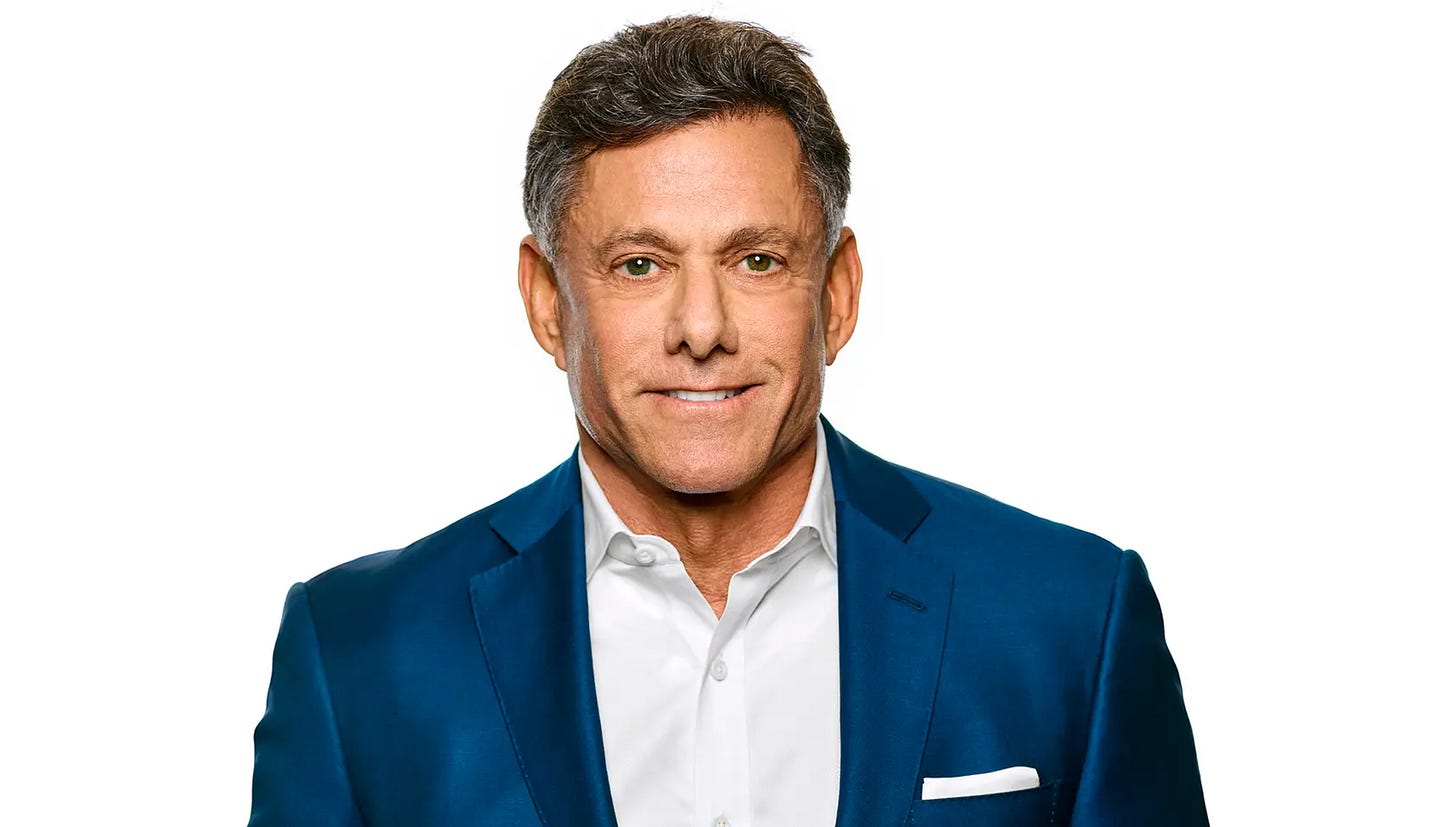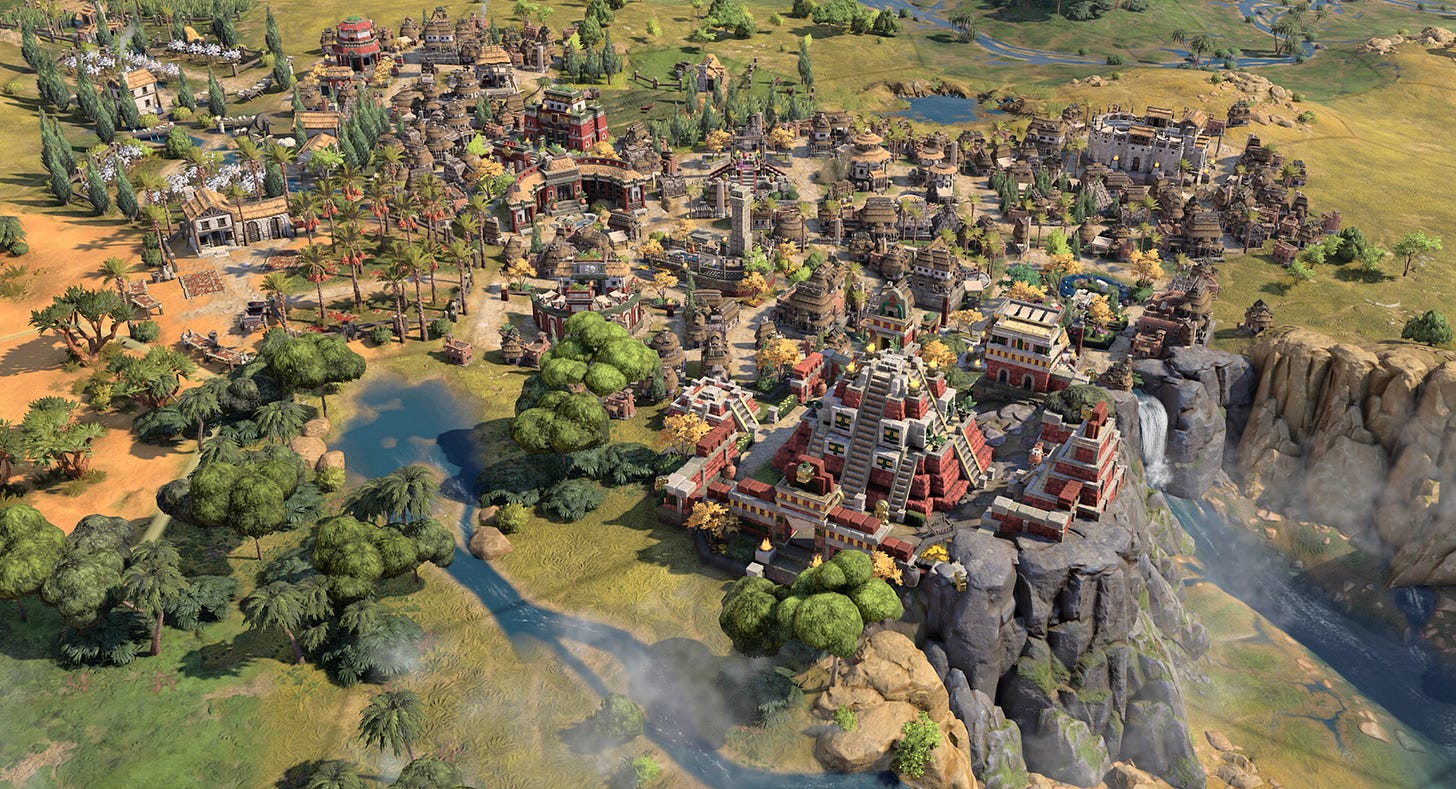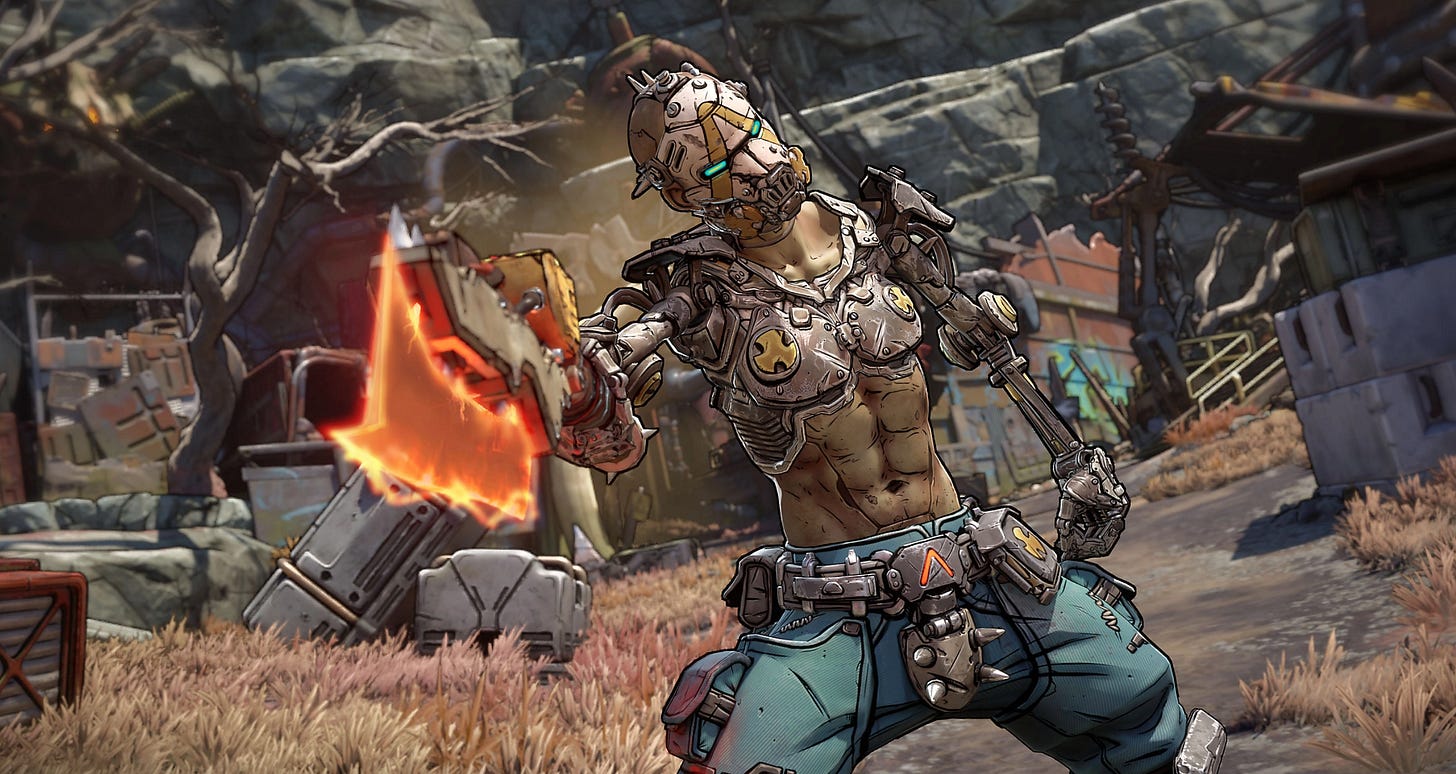Take-Two: We are looking over our shoulders. We are running scared
We speak to CEO Strauss Zelnick as the firm delivers strong Q1 results
Take-Two just reported very impressive financial results, delivering $1.42bn in bookings, well above its guidance of $1.25 - $1.3 billion.
As a result, the GTA publisher has raised its full year sales forecast to between $6.1 - $6.2 billion, up from $5.95 - $6.05 billion.
The firm has enjoyed strong performances across all its divisions. Zynga continues to beat expectations driven by several recent mobile hits, while 2K is enjoying stronger results for its NBA 2K title this year. Meanwhile, Rockstar’s GTA Online remains resilient and was actually boosted by the buzz created by the second GTA 6 trailer (which released in May).
But it’s looking ahead that is giving the Take-Two leadership confidence, with titles including Mafia: The Old Country and Borderlands 4 from 2K, CSR 3 from Zynga, GTA VI from Rockstar, and Judas from Ghost Story Games (the standalone developer operated by BioShock creator Ken Levine).
Take-Two says it has 25 titles due over the 2027 and 2028 financial years, including 17 ‘core’ releases (including GTA VI and five sports titles), four mobile games and four new versions of older titles.

Ahead of the financial results, I caught up with Take-Two CEO Strauss Zelnick where we discuss the US economy, the launch of Switch 2, developing markets, $80 price points and a bit more besides.
The results are materially better than expected. Were there headwinds you were anticipating that didn’t materialize?
No, not really. We didn’t expect headwinds. But we have experienced better performance than expected, and it’s across the board. And that is probably what is most gratifying about this quarter, all of our labels over-performed.
Our mobile business is just crushing it. One of the hardest things to do in the interactive entertainment business is to make a new, native mobile hit. And we have an addition to the great performance of Toon Blast, which is a legacy title growing 22% year-over-year. Match Factory grew 33% year-over-year. That title is about 18 months old. Color Block Jam is the highest growing title in [mobile developer] Rolic’s history. It’s top of the App Charts. It’s a phenomenal juggernaut of success. WWE Supercard from 2K is now at over 37 million downloads. NBA 2K25: Arcade Edition is top of charts. And NBA 2K All-Star in China is doing really, really well and is profitable for us right out of the gate. So our mobile business is really performing.
At the same time, our labels 2K and Rockstar are crushing it. 2K with all of its titles. Most notable with NBA 2K, which has now sold-in 11.5 million units. It is meaningfully up year-over-year, and I think recurrent consumer spending is up 48% year-over-year.
That is just based on people being engaged and loving a title. Exactly what you want for any of your games. And of course, WWE is performing. Civlization VII is performing after a slow start.
At the Rockstar level, Grand Theft Auto Online recurrent consumer spending is up. And the title itself has sold in over 215 million units, and continues to sell quarter after quarter. Red Dead 2 is doing great. Red Dead Online is doing great. And GTA+ is continuing to grow meaningful. It’s a story of great success across the board.
Circana has been reporting that US consumers are looking to cut back their entertainment spend as a result of economic uncertainty. It doesn’t look like that’s something you’re experiencing…
I’ve been asked about that. What I’ve said is… the interactive entertainment business is not counter-cyclical. It is not even necessarily recession resistant. In tough times though, people will still spend money on entertainment. They are going to be more selective, and selectivity will be good for Take-Two, because we focus on only the biggest and best hits, and that is where people go. People flock to quality. The strategy for this company has always been make fewer, make better. Today our goal is always to make the best entertainment experience of any sort that any consumer can purchase. No matter where they are, no matter what device they have. We sometimes fall short, but that’s our goal. And I think the reason that we see great success in our mobile business, the reason why we see great growth in NBA 2K when other sports titles are not seeing growth, is a reflection of quality.
“The interactive entertainment business is not counter-cyclical. It is not even necessarily recession resistant. In tough times though, people will still spend money on entertainment”
We spoke to Zynga a few weeks ago, and CEO Frank Gibeau talked about pushing into new markets like India and the Middle East. Do you expect these markets to have a material impact on your business in the short term?
It’s a long-term play. We run this business not for tomorrow, not for the quarter, not even for the year. We run this business for five, ten, 15, 20 years down the road. My team and I took over this company 18 years ago. I am not sure at the time that I expected to be here for 18 years. How could I have? But I did expect to build the business so that it would be solid and successful and growing in 18 years hence. And I intend to do the same thing now. People moan about markets being short-term focused… markets aren’t short-term focused, human beings are short-term focused. But we are not.
Our interest in development markets is a reflection of the fact that, even today, the interactive entertainment business is basically 80% US and Western Europe. And yet, there is over a billion people in China, 300 million of whom are middle class. There are a billion people in India. There are all these young people in Africa, all of whom have phones and all of whom love interactive entertainment. We know this market will develop, we need to be there so that in 10 years we are a leader in the rest of the word, as much as we are a leader in the US and Western Europe and pockets of Asia.
“We don’t believe that success is guaranteed. We are looking over our shoulders. We are running scared”
Do you have what you need to succeed there, or do you need to invest more?
We always have to invest. And in certain instances, we will want to make local products. But we do have a geo pricing, which is crucial. And we have the best intellectual property in the interactive entertainment space. Those are some pretty good assets.
Sticking with the future theme. We’re seeing a change in terms of what younger generations are playing, and how they’re playing. We can see some of that from the impressive numbers that Roblox is delivering. How mindful of that are you when it comes to looking further down the road for Take-Two?
We do not rest on our laurels. We don’t believe that success is guaranteed. We are looking over our shoulders. We are running scared. I am fond of saying that arrogance is the enemy of continued success. We know that in the next two, three, five, ten years… there is going to be an array of big new titles, and maybe even some new formats.
Our three-part strategy is to be the most creative, the most innovative and the most efficient company in the business. We need to innovate to make sure we continue to be a leader. I am not sure specifically about what young people want versus any other segment of the population, but I am sure there is great opportunity if you bring somebody something fantastic and unexpected.
“There have been some $80 games, and I am certain there will be some in the future”
Moving back to today. Last time we spoke, Nintendo Switch 2 hadn’t released yet. I know it’s still early days, but how are you feeling about it now it’s in market?
Positive. We feel pretty good about it. We are bringing out a number of titles for Switch 2. We are committed to the platform, and so far so good.
There are questions being asked about the future of the console space generally due to a general lack of user growth. How confident are you about this area of the business?
I am selectively confident about its future. We aim to put out our properties on all systems where consumers are and want to be. Not necessarily with the initial release, but over time. We’re not beholden to any particular technology set. Nor should we be.
Finally, you’ve decided to stick at $70 for Borderlands 4 when there was an expectation that you could go higher. Was now not the time to increase pricing?
We have had a variable pricing approach for some time. In general, the business consistently offers frontline products at a reasonable price, and then discounts over time. There have been some $80 games, and I am certain there will be some in the future. We want to deliver more value than what the customer pays for. And we want to really focus on having an experience where the thing itself is great, and what you paid for it is more than fair.





